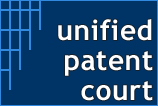What will happen if the United Kingdom, after ratifying the Unified Patent Court Agreement (UPCA) and some years of membership of the Unified Patent (UP) system, leaves the European Union? Can it continue to be a member of the system? If it doesn’t, what will happen to Unitary Patents that up to the Brexit were valid in the UK?
 Uncertainty remains after Monday’s announcement of UK Minister of State for Intellectual Property, Baroness Neville Rolfe, at the meeting of the EU Competitiveness Council in Brussels. The Minister said that the UK ‘is proceeding with preparations to ratify the Unified Patent Court Agreement’. The announcement received a warm welcome from professionals in the European patent world, as it gave new hope for the UP project. Since the Brexit vote of 23 June 2016 there had been widespread concern that the UP and UPC, which were due to start in the Spring of 2017, would be slowed down considerably or never get off the ground.
Uncertainty remains after Monday’s announcement of UK Minister of State for Intellectual Property, Baroness Neville Rolfe, at the meeting of the EU Competitiveness Council in Brussels. The Minister said that the UK ‘is proceeding with preparations to ratify the Unified Patent Court Agreement’. The announcement received a warm welcome from professionals in the European patent world, as it gave new hope for the UP project. Since the Brexit vote of 23 June 2016 there had been widespread concern that the UP and UPC, which were due to start in the Spring of 2017, would be slowed down considerably or never get off the ground.
The UP system can only start once thirteen member states have ratified the UPC Agreement, including France, Germany and the UK. So far, eleven states have ratified, one of them being France. After the Brexit vote, it was considered very unlikely the UK would be willing to support a system in which the UK would have to accept the supremacy of EU law and the decisions of the CJEU. As recently as in October 2016, during a speech at the Conservative Party conference, Prime Minister Theresa May said: ‘But let me be clear. We are not leaving the European Union only to give up control of immigration again. And we are not leaving only to return to the jurisdiction of the European Court of Justice.’
So not everyone was pleasantly surprised with the announcement. ‘Bonkers. Absolutely bonkers. How can we be signing up to the UPC whilst simultaneously leaving the EU and ending the jurisdiction of EU courts over the UK?’, a certain ‘Gilman’ reacted to an IP Kat blogpost.

Others wonder how important the announcement really is. Has the UK government only been buying time without making arrangements for the future? Is it a move to prevent getting the blame for blowing up the UP system? Or to prevent missing out on this system, which offers patents and litigation that is binding within almost the entire EU? Others discussed whether the announcement is a sign that the UK wants to stay in the UP system post Brexit, and whether the UK has perhaps even had guarantees it can stay.
Or has nothing really changed? ‘The press release is optimistically titled “UK signals green light to Unified Patent Court Agreement”. It is not all green lights in the press release though. Baroness Neville Rolfe (…) links the ratification to access to the free market. Is this press release offering ratification of the Unitary Patent in exchange for access to the free market? Despite the optimistic language, I still do not expect a quick ratification’, Sander van Rijnswou of Delta Patents writes.
Others question the wisdom of ratification of the UPCA: ‘Presumably the UK Government intends to deal with the future of the UPC and Unitary Patents as part of its Brexit negotiations, and to try to obtain agreement that the UK can remain in the system post-Brexit, in return for having cooperated to bring it into effect. However, by agreeing to ratify with apparently no strings attached at this stage, there is no bargaining chip remaining and instead there seems to be reliance on goodwill.’
Did the UK have a choice? ‘I think it was quite clear that if we didn’t then the other members would go ahead without us. If the other states had gone ahead it would have been difficult to join in the system later,’ Bristows partner Alan Johnson says in an article of the Law Gazette.
And a commentator under a post on this blog writes: ‘Until the UK deposits its Notice to Leave the EU it remains a full member and a “good European”. (…) So for the time being it’s “business as usual” for the 28 at the Competitiveness Council, where the UPC was up for discussion this week and where the UK would want to continue to behave sensibly and rationally. Hence the announcement to the Council that it “intends” to ratify. Come on folks; what else could the UK rep say to the CC meeting?’
Although in its announcement the UK government says: ‘… the decision to proceed with ratification should not be seen as pre-empting the UK’s objectives or position in the forthcoming negotiations with the EU’, many observers think it is obvious the UK wants to stay in the UP system post-Brexit.
‘The Unified Patent Court in the UK was to be the central hub for determining life sciences and pharmaceutical patent disputes – a highly lucrative branch of patents and one in which the UK bar and judiciary had considerable expertise. (…) Further, assuming that the Government does intend to proceed with the establishment of the UK branch Court for the Unitary Patent, it would seem inconceivable that such a Court would be asked to decide disputes covering a jurisdiction of which it was not itself a part.’ (IPtechblog)
‘Ratification makes no sense if the goal is a hard Brexit: while it will still be possible for the UK to break away from the UPC in a number of years’ time, post-Brexit, the UK would have to do so by abandoning a fully functioning court system, featuring its own judges, that may have already become popular with UK businesses and inventors.’ (Luke McDonagh, Law School City University London)
 For future users of the UP system, the UK announcement has not made things less complicated. On the contrary, they are quite unexpectedly faced with the fact that the system is likely to launch within a year. They need to resume preparing as a matter of urgency and decide, for instance, if they want to opt-out all or part of their patents of the jurisdiction of the Unified Patent Court. And if they want to use the new Unitary Patent and get protection at once for their patents in the 15 to 20 member states that will have ratified the system by the time it launches.
For future users of the UP system, the UK announcement has not made things less complicated. On the contrary, they are quite unexpectedly faced with the fact that the system is likely to launch within a year. They need to resume preparing as a matter of urgency and decide, for instance, if they want to opt-out all or part of their patents of the jurisdiction of the Unified Patent Court. And if they want to use the new Unitary Patent and get protection at once for their patents in the 15 to 20 member states that will have ratified the system by the time it launches.
The lack of clarity about the UK’s participation post Brexit complicates things even further. The UK may want to stay in the UP system, but is that legally possible? According to the Opinion of Brick Court Chambers and in the view of Prof. Dr. Ansgar Ohly, it definitely is. UPC Preparatory Committee chairman Alexander Ramsay told Kluwer IP Law: ‘If there is a need for any amendments of the UPCA this can, after the entry into force of the UPCA, be taken care of by the simplified procedure that is foreseen in the Agreement (article 87) – by a decision of the Administrative Committee of the UPC.’ A detailed legal analysis of Bird & Bird partner Wouter Pors explains that ‘providing a long-term solution isn’t even that complicated’ for post Brexit participation of the UK in both the Unified Patent Court and the Unitary Patent.
However, nobody knows for sure what will happen. Users will not only have to deal with the uncertainty of a new system, but with a lack of clarity regarding the UK’s position as well. This is especially challenging in case the UK is an important market. It may lead to a very cautious use of the Unitary Patent and the jurisdiction of the Unified Patent Court up to the moment that the future of the UK is clear, probably the moment the exit negotiations with the EU have been terminated.
For regular updates on the Unitary Patent and the Unified Patent Court, subscribe to this blog and the free Kluwer IP Law Newsletter.
________________________
To make sure you do not miss out on regular updates from the Kluwer Patent Blog, please subscribe here.


